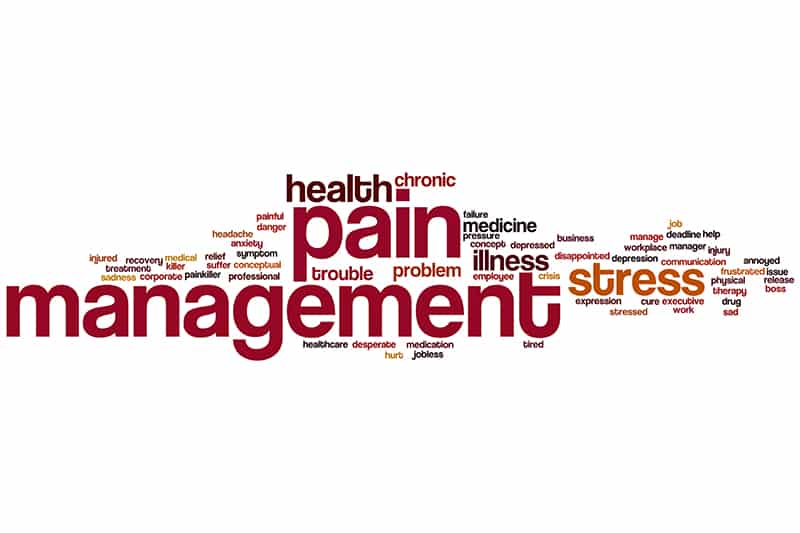Psychogenic pain disorder is a condition associated with psychological factors such as depression and anxiety. This pain disorder is not just caused by clear physical health conditions because people with depression and anxiety may report psychogenic pain all over their bodies, even when there is no apparent physical cause. It is a very real type of chronic pain, where a patient may complain of pain that does not match their symptoms. Knowledge about current pain management medical billing and documentation and compliance updates is essential to report the services provided to patients correctly. ICD-10 offers specific codes that enable providers, staff, and coders to code the disorder as specifically as possible.
Causes and Symptoms
Generally, psychogenic pain can be caused or made worse due to emotional events in one’s life. Those emotional events when combined with fears and beliefs, may influence the body’s pain sensations. When the mind causes pain without a physical source, or make preexisting pain increase or linger, it is called psychogenic pain. This phenomenon occurs when the pain is related to underlying psychological, emotional, or behavioural factors.
Just like the pain caused by a physical cause, psychogenic pain can be acute or chronic: acute pain is sharp but brief whereas chronic pain is constant, lasting anywhere from a few weeks to several years. Acute psychogenic pain usually doesn’t require treatment, but then due to the continued suffering associated with chronic pain, treatment is highly recommended.
Usually, this type of pain can have many different psychological factors – such as beliefs, emotions, fears and mental illness like depression or anxiety – that can trigger, exacerbate, or maintain the pain. Some other symptoms of chronic psychogenic pain include headache, muscle ache, abdominal pain, or back pain. What’s more interesting is that a person with a psychogenic pain disorder may complain of pain that does not match their symptoms. Therefore, there’s no certain way to accurately detect and diagnose psychogenic pain. The healthcare team may start diagnosing the condition by ruling out all possible physical causes of a person’s pain. If the symptoms don’t align with a physical health issue, then the team will conclude that the person may be diagnosed with psychogenic pain.
Diagnosing and Treating Psychogenic Pain
Effectively treating psychogenic pain can be challenging because treatment for this disorder often depends on the type of pain and the history of the patient (whether he/she had any psychological distress). Before giving a diagnosis of psychogenic pain, a good health care provider will test for possible physical causes. To treat the pain or to reduce or relieve the symptoms, a good health care provider will recommend physical therapy, medication, and dietary adjustments – depending on the type of pain.
Once the healthcare provider diagnoses the disorder, he/she will recommend certain ways to treat the condition. A therapist and the patient can together try to determine the underlying mental cause (that caused the pain), and take steps to treat it. They may recommend proven neurological medications, to treat the psychological problem or to reduce pain caused by mental distress. They may also offer some alternative treatments, such as acupuncture and occupational therapy, to assist with the healing process. Some healthcare providers prescribe antidepressants with pain reducing properties or non-narcotic painkillers.
ICD-10 Codes to Report Psychogenic Pain
Billing and coding for Psychogenic pain disorder can be challenging, as it involves several related symptoms. Physicians treating psychogenic pain must use the relevant CPT codes to bill for the procedure correctly. The ICD-10 codes for Psychogenic pain include –
- F45.4– Pain disorders related to psychological factors
-
- ∘
45.41 –
-
- Pain disorder exclusively related to psychological factors
-
- ∘
45.42 –
- Pain disorder with related psychological factors
Sometimes, psychogenic pain may occur as part of hypochondriasis or as a symptom of a depressive disorder and appropriate treatment depends on the context of the symptom.
ICD-10 codes for hypochondriasis and depressive disorder include:
F45.21 – Hypochondriasis
- F32 – Depressive episode
-
- ∘ F32.0 Major depressive disorder, single episode, mild
-
- ∘ F32.1 Major depressive disorder, single episode, moderate
-
- ∘ F32.2 Major depressive disorder, single episode, severe without psychotic features
-
- ∘ F32.3 Major depressive disorder, single episode, severe with psychotic features
-
- ∘ F32.4 Major depressive disorder, single episode, in partial remission
-
- ∘ F32.5 Major depressive disorder, single episode, in full remission
- ∘ F32.8 Other depressive episodes
- F32.81 Premenstrual dysphoric disorder
- F32.89 Other specified depressive episodes\
- ∘ F32.9 Major depressive disorder, single episode, unspecified
-
- F33 – Major depressive disorder, recurrent
-
-
- ∘ F33.0 Major depressive disorder, recurrent, mild
-
- ∘ F33.1 Major depressive disorder, recurrent, moderate
-
- ∘ F33.2 Major depressive disorder, recurrent severe without psychotic features
-
- ∘ F33.3 Major depressive disorder, recurrent, severe with psychotic symptoms
-
- ∘ F33.4 Major depressive disorder, recurrent, in remission
-
- F33.40 …… unspecified
- F33.41 Major depressive disorder, recurrent, in partial remission
- F33.42 Major depressive disorder, recurrent, in full remission
-
∘ F33.8 Other recurrent depressive disorders
∘ F33.9 Major depressive disorder, recurrent, unspecifiedCoding psychogenic pain disorder requires good knowledge of the relevant diagnosis and procedure codes. Coders need to be up-to-date with the changing codes and standards to ensure accurate reporting of diagnostic details, which will help avoid denied and delayed claims. Specialists can consider taking support from coders in a reliable pain management medical coding company to ensure error-free claim submission.
-




